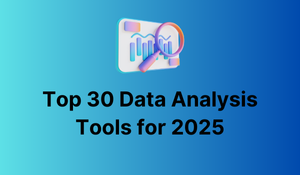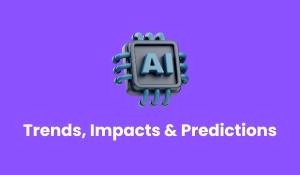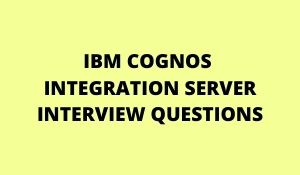
What is Big Data Analytics? A Complete Guide to Big Data Analytics
Big Data analytics is the process of collecting and analyzing large data sets called Big Data to discover patterns and other useful information. Big Data analytics can help organizations to understand better the information contained within the data and will also help identify the data that is most important to the business and future business decisions. Analysts working with Big Data generally want the knowledge that comes from analyzing the data.
What is Big Data Analytics? A Complete Guide to Big Data Analytics List of Key points to be covered:
Introduction to Big Data Analytics
Life Cycle of Big Data Analytics
Why Big Data Analytics is important
Why Big Data Analytics is important
Benefits of big data Analysis for Modern Enterprises
10 Tools used for Big Data Analytics
Skills required for big data analyst
Become a Big Data Analyst
Introduction to Big Data Analytics
Big data analytics allows data scientists and other users to calculate large volumes of transaction data and other data sources that traditional business systems would be unable to track. Traditional systems may fall short since they’re unable to analyze data sources.

Sophisticated software programs are used for big data analytics, but the unstructured data used in big data analytics may not be well suited for conventional data warehouses. The process of converting large amounts of unstructured raw data received from different sources to a data product useful for organizations forms the core of Big Data Analytics. Big data’s high processing requirements may also make traditional data warehousing a poor fit. As a result, newer, bigger data analytics environments and technologies have emerged, like Hadoop, MapReduce, and NoSQL databases. These technologies make up an open-source software framework that is used to process large data sets over clustered systems.
Life Cycle of Big Data Analytics
In today’s big data context, the previous approaches are either incomplete or suboptimal. For example, the SEMMA methodology disregards completely data collection and preprocessing of different data sources. These stages typically constitute most of the work in a successful big data project.
A big data analytics cycle can be described as follows
- Business Problem Definition
- Research
- Human Resources Assessment
- Data Acquisition
- Data Manipulation
- Data Storage
- Exploratory Data Analysis
- Data Preparation for Modeling and Assessment
- Modeling
- Implementation
Related Courses
| Course Name | Enroll Now |
|---|---|
| Big Data Architect Masters Program | Enroll Now |
| BIG DATA SPLUNK TRAINING | Enroll Now |
| Informatica Big Data Integration Online Training | Enroll Now |
| BIG DATA HADOOP TRAINING | Enroll Now |
| Talend Big Data Training | Enroll Now |
Why Big Data Analytics is important?
Big data analytics helps companies harness their data and use it to identify new opportunities. That leads to smarter business moves, higher profits, and happier customers. In his report, Big Data in Big Organizations, IIA Director of Research Tom Davenport interviewed more than 50 businesses to understand how they used big data. He found they got value in the following ways:
- Cost reduction
- Faster, better decision making
- New products and services
Benefits of Big Data Analysis for Modern Enterprises
Big Data Analytics enables enterprises to analyze their data in full context and offer real-time analysis. With high-performance data mining, predictive analytics, forecasting, and optimization, enterprises that utilize Big Data Analytics can drive innovation and make informed business decisions.
Big Data Analytics enables enterprises to narrow their Big Data to the most relevant information and analyze it for critical business decisions. This proactive approach to business is transformative because it gives analysts and decision-makers the power to move ahead with the best insights available. This means that companies can improve their customer retention, develop better products or services, and gain a competitive advantage by taking rapid action to respond to market changes and other metrics that impact the business. Enterprises utilizing Big Data Analytics with fidelity also can boost sales and marketing results, discover various revenue opportunities, improve customer service, optimize operational efficiency, and drive other business results.

10 Tools Used for Big Data Analytics
Big Data Analytics software is widely used in providing exceptional analysis of a large set of data. This software helps in finding current market trends, and other information.
Below are the Tools
- Xplenty
- Microsoft HDInsight
- SkyTree
- Talend
- Splice Machine
- Apache Spark
- Plotly
- Apache SAMOA
- Lumify
- ElasticSearch
Skills required for big data Analyst
These are skills required for Big Data Analyst, Big Data Developer, and Big Data Engineer
- Apache Hadoop
- Apache Spark
- NoSQL
- Machine learning and Data Mining
- Statistical and Quantitative Analysis
- SQL
- Data Visualization
Become a Big Data Analyst
Traditional data analysis fails to cope with the advent of Big Data Analytics which is essentially huge data, both structured and unstructured. Much more is needed than being able to navigate relational database management systems (DBMS) and draw insights using statistical algorithms. The good news is that the analytics part remains the same whether you are dealing with small datasets, large datasets, or even unstructured datasets. What is needed the most in big data is the ability to draw relevant information from every minute of the huge amount of data being processed.
Let us look at some of the key skills
needed for being a big data analyst
- Programming
- Data Warehousing
- Computational frameworks
- Quantitative Aptitude and Statistics
- Business Knowledge
What is Big Data Analytics? A Complete Guide to Big Data Analytics
👉 Related Articles:
🎯 Big Data in Internet Of Things
🎯 What is MapReduce in Big Data?
🎯 Big Data vs Data Science vs Data Analytics
🎯 Detail Information about Big Data in AWS
🎯 Everything You Need To Know-Talend Big Data
🎯 Hadoop Vendors Leading the Big Data
🎯 Big Data solutions for SQL Server
🎯 Big Data Analytics Interview Questions And Answers
🎯 BIG DATA TALEND Interview Questions and Answers
🎯 Big Data Mapreduce Interview Questions and Answers
🎯 Big Data&Hadoop Interview Questions and Answers










